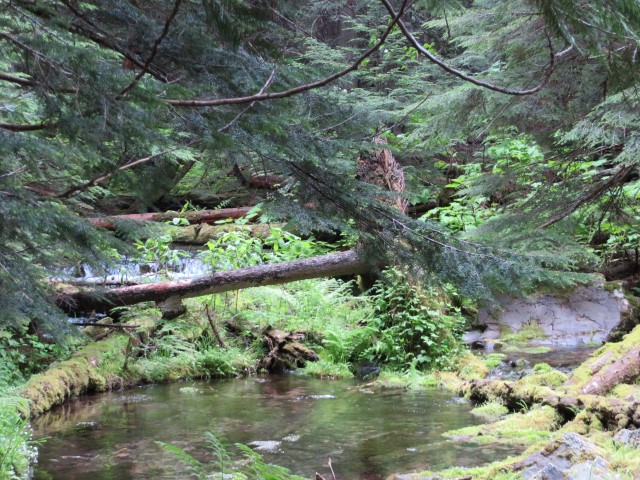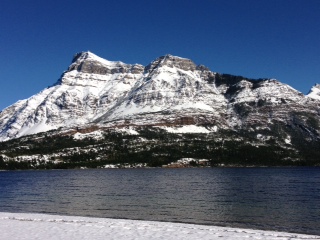Debo Powers, president of the North Fork Preservation Association, had an excellent op-ed on the Daily Inter Lake yesterday talking about heavy logging in the Canadian Flathead drainage . . .
The North Fork of the Flathead River has long been recognized as an internationally special stream, both in Canada and the United States. As such, the drainage has been managed with unusual care and attention on both sides of the international line.
But recent activity on the British Columbia side of the North Fork Valley should have all of us on alert. Especially those of us who care deeply about clean water, native trout, Glacier Park and Flathead Lake.
Over the past decades, much of the concern over the North Fork of the Flathead has focused on energy and coal development. And rightly so. Mountain-removal coal mining would have had devastating effects on the clean water that pours out of Canada, into Northwest Montana.
Thankfully, we’ve put that concern behind us via international agreements. But now we need similar, international agreements on how the North Fork of the Flathead Valley is going to be logged, particularly north of the border.
Obviously, logging does not have nearly the impact of coal mining. Trees grow back. Timber harvest can be compatible with keeping the North Fork healthy. But it’s compatible only if done correctly, up to modern scientific standards and with full transparency.
Two companies, Canfor and Jemi Fibre, are cutting or plan to cut large swaths of forest in the British Columbia Flathead. It’s worth noting that clearcut logging of such massive scale would simply not be allowed in the United States. In addition, the United States would have much stricter guidelines — such as how heavy equipment is used and requiring buffer zones around streams.
These are not just any streams. The logging is proposed around Foisey and McClatchie Creeks. These are major tributaries of the North Fork. Not only are they the source of clean water that eventually flows into Flathead Lake, they are major spawning tributaries for bull trout migrating out of Flathead Lake.
In particular, Jemi Fibre’s plans to log “Sportsman’s Ridge” are of particular concern. This area produces 30-40 percent of the bull trout in the North Fork. As the name implies, it is rich with wildlife.
On July 17, Sen. Jon Tester wrote Secretary of State John Kerry asking him to broach the subject of watershed management in the North Fork with the Canadian Minister of Foreign Affairs.
Sen. Tester wrote, “…proposed logging in the Canadian Flathead near McLatchie and Foisey Creeks [major tributaries to the North Fork] have Montanans and federal agencies very concerned about adverse downstream impacts on water quality and wildlife… Sedimentation from large-scale timber harvest has great potential to negatively affect” the North Fork.
Flathead Trout Unlimited raised the alarm on Canadian logging in the watershed. I am grateful for their vigilance.
Please note that no one is saying the North Fork should be entirely off-limits to logging. There is room for sustainable timber harvest here, and we know logging can be light on the land and even beneficial for some wildlife species. We are simply saying that Canada and Montana should be good neighbors when planning this logging.
Experts from both countries should carefully think out logging plans. Those plans should employ the latest science and the best management practices to protect the wildlife, fish and water we share. After all, those resources move freely over the international border.
The North Fork of the Flathead Valley is a truly special place. Generations of Montanans and Canadians have worked together to keep it that way. Ultimately, the citizens of each nation have the final responsibility to be good stewards, and good neighbors.
I encourage Montana’s entire congressional delegation and Gov. Steve Bullock to speak clearly and respectfully to their Canadian counterparts: Let’s work together to keep the North Fork special, before it’s too late.

